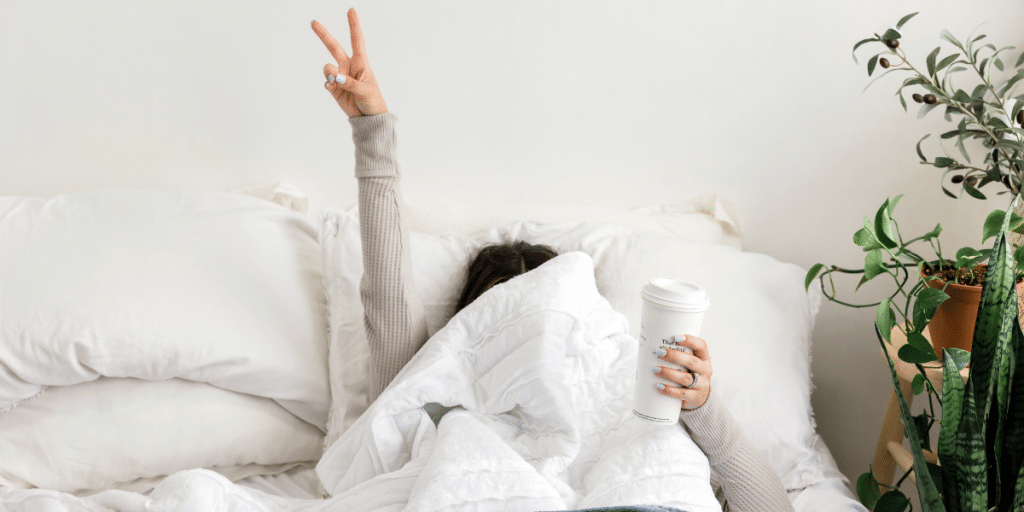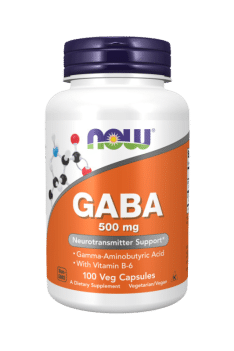Did you stumble upon this article whilst trying to fall asleep at 2am? I’m sure you’re not alone! In this blog, we’ll be discussing 5 daily habits for better sleep.
Getting a good night’s sleep is essential for maintaining good health and wellbeing. Good quality sleep can promote physical health, enhance mental health, boost immune system function, improve cardiovascular health, help maintain a healthy weight and reduce stress.
Lack of sleep can actually lead to irritability, trouble concentrating, and poor performance at work/school.
Developing and sticking to a consistent routine can assist you in getting the sleep you require to feel rested and alert the next day.
How to improve your sleep quality

Humans are habitual creatures. Daily routines establish habits that help our brains recognize when it is time to sleep. Here are 5 tips and tricks:
1. Stick to a sleep schedule
Our bodies have an internal clock, also known as the circadian rhythm, that controls our sleep-wake cycle. Going to bed and waking up at the same time every day can help you regulate this internal clock, promoting better sleep.
When you maintain a consistent schedule, your body knows when to sleep and when to wake up. This will actually make it easier for you to fall asleep quickly and wake up feeling well rested.
2. Plan your day
Take some time out of your evening to sit down and make a plan for the next day. Spending just 5 minutes each night writing a to-do list can help you avoid the habit of thinking about everything you need to do while trying to sleep.
A to-do list on paper can relieve you of the need to constantly run through a mental version. It can also make you feel more in control of your day before it even starts.
3. Avoid caffeine after 3pm
Caffeine peaks and fades quickly, but it lingers in your system for a long time. There is good evidence that caffeine can affect both the quantity and quality of sleep for many people, so it is best to avoid it early in the day.
4. Exercise daily
Exercise has been found to increase the amount of time spent in deep sleep, which is the most restorative stage. Deep sleep is necessary for physical recovery, cognitive function, and memory consolidation. Furthermore, exercise can help to clear the mind, reduce tension, and promote relaxation, all of which can help you fall and stay asleep.
It is important to note, however, that the timing and intensity of exercise can have an impact on sleep quality. Exercising too close to bedtime or engaging in high-intensity exercise can actually disrupt sleep, so finding a balance that works for you is essential.
5. Early morning sun exposure
On the surface, it doesn’t seem to make any sense – but it’s true!
Light entering the eyes communicates the time of day to the brain and the body. Sunlight causes the pituitary gland to “wake up,” and the pituitary gland responds by secreting hormones.
Bright morning light signals your body to restrict melatonin production while increasing cortisol (which is good for you in healthy amounts) and serotonin production. The pineal gland eventually converts serotonin into melatonin, which is what helps you sleep naturally at night.
6. Natural supplement routine
As we’ve discussed, getting good quality sleep often starts with good habits and routines. However, for some, this is insufficient. Consider trying the following 5 natural sleep-promoting supplements if you need a little extra help.
-
 Now Foods Magnesium Glycinate€31.99
Now Foods Magnesium Glycinate€31.99 -
 NOW Foods Ashwagandha 450mg€17.00
NOW Foods Ashwagandha 450mg€17.00 -
 NOW Foods Valerian Root 500mg€10.99
NOW Foods Valerian Root 500mg€10.99 -
 NOW Foods Melatonin 3mg Chewable€12.00
NOW Foods Melatonin 3mg Chewable€12.00 -
 NOW Foods GABA 500mg€13.99 – €25.99
NOW Foods GABA 500mg€13.99 – €25.99
Wrap-up
Developing daily habits that promote better sleep quality is crucial for overall health and wellbeing. Studies have shown that better sleep can improve cognitive function, boost mood, strengthen the immune system, and reduce the risk of chronic health conditions. Therefore, making it a priority by establishing healthy habits is essential for achieving optimal health and wellbeing.
